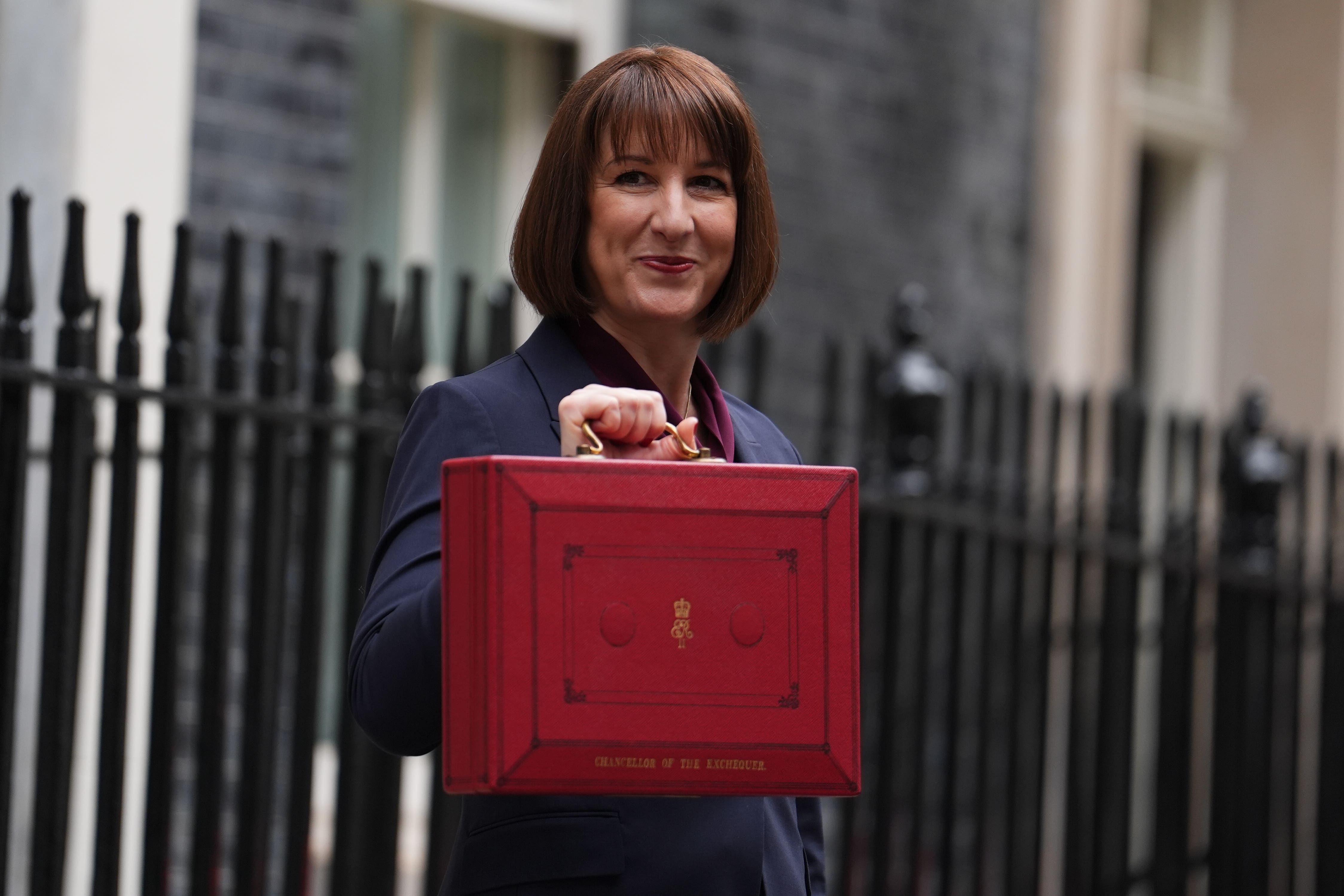Spending on projects early could lead to higher costs in the end – OBR chief
Richard Hughes was speaking to a cross-party committee of MPs on Tuesday.

Your support helps us to tell the story
From reproductive rights to climate change to Big Tech, The Independent is on the ground when the story is developing. Whether it's investigating the financials of Elon Musk's pro-Trump PAC or producing our latest documentary, 'The A Word', which shines a light on the American women fighting for reproductive rights, we know how important it is to parse out the facts from the messaging.
At such a critical moment in US history, we need reporters on the ground. Your donation allows us to keep sending journalists to speak to both sides of the story.
The Independent is trusted by Americans across the entire political spectrum. And unlike many other quality news outlets, we choose not to lock Americans out of our reporting and analysis with paywalls. We believe quality journalism should be available to everyone, paid for by those who can afford it.
Your support makes all the difference.Injecting cash into Government projects early on rather than spreading it out over a longer period could “possibly” mean that they cost more in the long run, the head of the Budget watchdog has suggested.
Richard Hughes, the chair of the Office for Budget Responsibility (OBR) told a cross-party committee of MPs on Tuesday that “front loading” on spending means that “quite possibly” projects could cost more in the end.
Mr Hughes also said the pressure the OBR believes could be put on the labour market and other elements by the Government’s plans contributed to them predicting higher inflation.
Mr Hughes was speaking to the Treasury Committee on Tuesday, less than a week after Rachel Reeves delivered her first Budget as Chancellor.
We do have a higher inflation in our forecast as a result of the fact there’s a big fiscal loosening in this Budget
Last Wednesday, Ms Reeves announced £40 billion a year in extra taxes, with money being poured into schools, hospitals, transport and housing.
The OBR forecasts that accompanied the fiscal statement indicated that inflation will rise to 2.6% in 2025 “partly due to the direct and indirect impact of the Budget” – significantly above the 1.5% rate previously predicted.
The watchdog’s fiscal outlook document released with the Budget last week also described the “fiscal loosening” in the announcement signalled by the increase in public spending as “front-loaded”.
Mr Hughes was asked about the concept of front-loading, when a spending cost is more heavily attributed to the start of a project.
Liberal Democrat MP Bobby Dean asked Mr Hughes about where the Government is directing capital spend in the “near-term”.
Mr Hughes said that a “lot of” the spend is going into areas such as health, education and energy infrastructure, but also admitted that “we don’t have a lot of visibility about what the Government is spending its capital on” in the longer term.
The “ramp up” of public spending could also put pressure on elements such as the labour force and materials and in turn contributed to their decision to increase inflation predictions, Mr Hughes said.
He told MPs: “Are the resources readily available to actually respond to the demands being put on them in terms of skilled personnel to do the building, access to materials to build the things?
“And part of the reason why we’ve got inflation going up and we’ve got interest rates going up is we think the short answer to that is no.”
Pushed further by Mr Dean on whether there was a fear that “by front loading” rather than “spreading that capital spend” over a longer period there could be “more expensive infrastructure delivery”, Mr Hughes responded: “Quite possibly. Quite possibly, yes.”
He added: “We do have a higher inflation in our forecast as a result of the fact there’s a big fiscal loosening in this Budget.
“About two thirds of it is going on current spending but about one third of it is going on capital, which makes it more capital heavy than the overall composition of public spending so it’s a significant injection.”
As well as the tax rises, last week’s Budget also confirmed a change in the way Government debt is measured in order to give the Treasury greater borrowing flexibility.
Speaking last week, Ms Reeves said that she had to make “big choices” in her statement.
“I don’t want to repeat a Budget like this ever again, but it was necessary to get our public finances and our public services on a stable trajectory,” she told Times Radio.